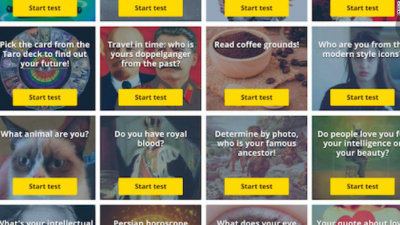Last updated on February 1, 2021
When you just browse internet, what if you find a small quiz like,
“How many kids can you have? – Get to know”
“Do you have royal blood? – Test now”
“How intelligent are you? – Check”
These types of questions naturally draw the attention of human beings though they may believe in something else. Some of them even click on them to see the answer.
For an example, have you seen something like this?
 Source of the Image: https://www.google.com/
Source of the Image: https://www.google.com/
This enthusiasm directs you to a page where you have to continue with your Facebook user name and the password. Obviously the one who is eager to know ‘how many kids he or she is going to have’ just thinks that it may relate to a Facebook page or something and enters user credentials (user name & password) to see the answer. Perhaps you may get a pleasing answer.
However, the next time you try to log into your Facebook account, you will find that the account is totally compromised. Then only things would be clear to you: The quiz has no relevance to Facebook, but it is a fake app that grabs your Facebook user credentials directing you to a fraudulent page. After that, hackers may misuse your personal data, blackmail you, send you ransomware links and give you many more headaches.
Recently, Facebook has taken legal action against two developers based in Ukraine for violating their Community Guidelines and other US laws by operating malicious browser extensions designed to scrape Facebook and other social networking sites.
Therefore, it is very crucial to think twice where anything seems too good to be true. All you should do to avoid such happenings is to be a bit patient and check the genuineness of those URLs (links) before clicking. Learn more about how you can decide whether it is a fake or a real website. Moreover, be careful before providing your user credentials.

